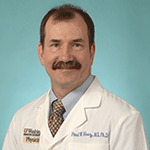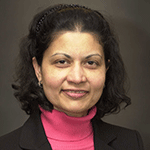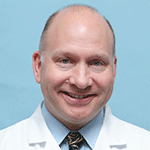Washington University School of Medicine in St. Louis and its Department of Pediatrics have established funding for three pediatric scholars named in honor of a trio of highly regarded former pediatricians at the university.
The School of Medicine is funding the Scholars in Pediatrics with $3 million to be divided among three faculty members, in support of their time and efforts devoted to scholarship and teaching. Each inaugural scholar is being appointed for three years.
“The former faculty members whose careers are being honored with these awards would be pleased to know the work of talented, dedicated professionals will be so greatly enhanced with these awards,” said Alan L. Schwartz, MD, PhD, chairman of the university’s Department of Pediatrics and the Harriet B. Spoehrer Professor of Pediatrics. “These inaugural scholars already have contributed greatly to the university and the field of medicine, but this allows them to further meet their potential — and at a critical time for medical research and education, considering the nation’s budget crisis and its impact on medical advancement.”
The new Scholars in Pediatrics, each of whom practices at St. Louis Children’s Hospital, are well-known in their fields. They are Paul Hruz, MD, PhD, Shalini Shenoy, MD, and Andrew White, MD.

Hruz
Hruz will serve as the inaugural Julio V. Santiago, MD, Scholar in Pediatrics. Hruz is an associate professor of pediatrics and of cell biology and physiology, as well as director of the Department of Pediatrics’ and Children’s Hospital’s Division of Endocrinology and Diabetes. He is an internationally renowned researcher in childhood diabetes and the molecular mechanisms of glucose biology.
Santiago served as co-director of the Division of Endocrinology and Diabetes from 1984 to 1997 and, like Hruz, was recognized globally for his research in childhood diabetes. He was a leader in the development and testing of miniaturized portable insulin infusion pumps, as well as other contributions in diabetes care. At the time of his death in 1997, Santiago was involved in the Diabetes Prevention Program, at that point the largest national diabetes study to evaluate whether medication or lifestyle changes could prevent or delay adult-onset diabetes.

Shenoy
Shenoy, MD, will serve as the inaugural Teresa J. Vietti, MD, Scholar in Pediatrics. Shenoy is a professor of pediatrics and director of the Pediatric Bone Marrow Transplant Program at Washington University, Children’s Hospital and Siteman Cancer Center. She is recognized as a superior clinician, teacher and renowned leader in pediatric stem cell transplantation.
Vietti, a pediatric oncologist who earned the nickname “the mother of pediatric cancer therapy,” was director of the School of Medicine’s Division of Hematology/Oncology from 1970 to 1986. A leading clinical and translational investigator, she conceived the concept of multi-institution pediatric cooperative groups and founded the Pediatric Oncology Group (POG), now known as the Children’s Oncology Group (COG). Under her leadership, POG grew to more than 100 institutions and 1,500 investigators. Vietti, a professor emeritus of pediatrics and of radiology, died in 2010.

White
Dodge, one of the founders of pediatric neurology, served as chair of the Department of Pediatrics from 1967 to 1986. A professor emeritus of pediatrics and of neurology at the School of Medicine, Dodge is credited with bringing the Department of Pediatrics and Children’s Hospital to international prominence for clinical care, teaching and research. Known for his vision, wisdom and compassion, he was a respected clinician and revered teacher and mentor. He died in 2009.


